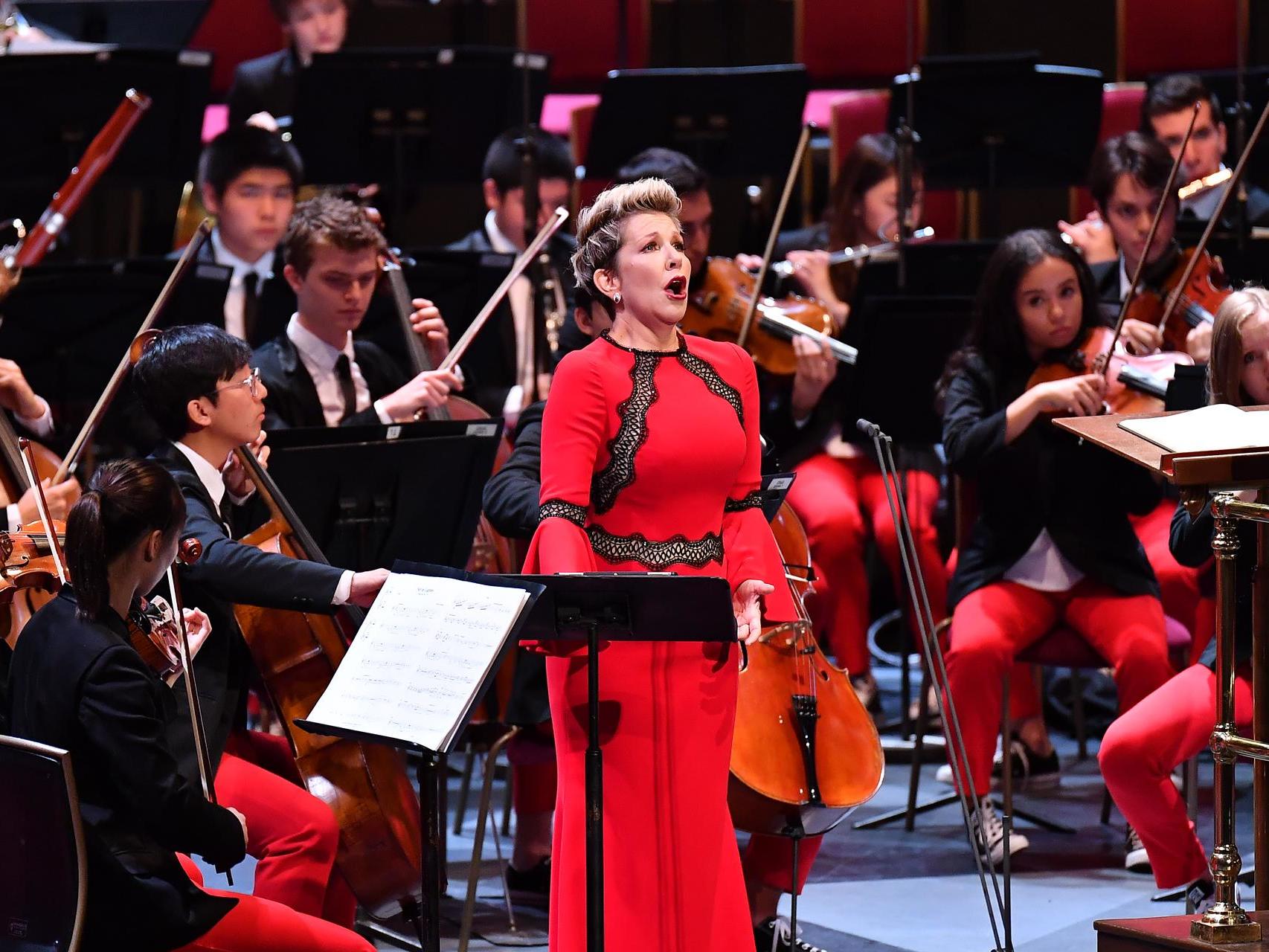BBC Proms 29 and 32 review: Musical nostalgia from John Wilson’s ensemble and a larger than life performance from the National Youth Orchestra of the USA
The John Wilson Orchestra take us back to Hollywood’s Golden Age while America’s National Youth Orchestra perform with boundless energy

Your support helps us to tell the story
From reproductive rights to climate change to Big Tech, The Independent is on the ground when the story is developing. Whether it's investigating the financials of Elon Musk's pro-Trump PAC or producing our latest documentary, 'The A Word', which shines a light on the American women fighting for reproductive rights, we know how important it is to parse out the facts from the messaging.
At such a critical moment in US history, we need reporters on the ground. Your donation allows us to keep sending journalists to speak to both sides of the story.
The Independent is trusted by Americans across the entire political spectrum. And unlike many other quality news outlets, we choose not to lock Americans out of our reporting and analysis with paywalls. We believe quality journalism should be available to everyone, paid for by those who can afford it.
Your support makes all the difference.Prom 29: The Warner Brothers’ Story, John Wilson Orchestra, John Wilson
★★★★☆
With a swoon of strings and blinding razz of brass, the John Wilson Orchestra announce their tenth anniversary appearance at the Proms, taking us back to Hollywood’s Golden Age – an era that swathed even the grittiest domestic tragedy in musical mink and pearls.
And what luxury we get. From the quiet yearning of Max Steiner’s score for Bette Davis-vehicle Now, Voyager (strings here sanded back to the same soft-focus glow as the cinematography) to the swashbuckling urgency of Korngold’s The Sea Hawk and the seedy sensuality of Alex North’s A Streetcar Named Desire, this is where film music really began. A final encore of John Williams’ music for Harry Potter reminds us just how far its influence extends.
Wilson’s brand of musical nostalgia is delivered with a straight face and absolutely no sentimentality, letting the late-Romantic radiance of so many of these scores (Dimitri Tiomkin’s The Old Man and the Sea is a delicious, if too-brief, highlight) speak for itself. His is an orchestra of generals, and the colour these players draw from these sepia masterpieces is dazzling.
Whether it’s the dirty-talking solo trumpet in Howard Arlen’s Blues in the Night or the swing-band swagger of the brass in the overture to Gypsy, the orchestra is the star here. Which leaves soloists Louise Dearman, Matt Ford and Mikaela Bennett seeming just a little superfluous. Their slick numbers from My Fair Lady, Calamity Jane (a tour de force by Dearman) and A Star is Born have plenty of musical pizzazz, but lose something of their personality in the anonymising classical stadium of the Royal Albert Hall.
Prom 32: Joyce DiDonato, National Youth Orchestra of the USA, Antonio Pappano
★★★★☆
There are no such difficulties for the National Youth Orchestra of the USA, whose sprawling forces and big-boned programme of Strauss and Berlioz are already larger than life. Bounding into the hall in their blazers, red jeans and matching trainers, the group look more like young Olympians than a symphony orchestra, and the similarities only increase once they start to play.
A curtain-raiser by 19-year-old American composer Benjamin Beckman (how often do you hear classical music by a teenager performed by his own peers?) establishes the warm power of the ensemble’s sound. Energy is a given with youth orchestras, but restraint, pacing and blend are a bonus. The latter is the key to Berlioz’s sumptuous song-cycle Les nuits d’ete, with its drifting clouds of harmony and highly perfumed texts. American mezzo Joyce DiDonato is a natural communicator, meeting the orchestra on their own, delicate territory before drawing them out into brighter, blowsier bloom in the cycle’s glorious close “L’ile inconnue”.
Strauss’s mighty Alpine Symphony leads its listeners up a mountain and down again in just under an hour, taking in waterfalls, meadows and a sunrise, as well a ferocious storm, along the way. Playing with light-footed ease and swiftness under the Royal Opera’s Antonio Pappano, the orchestra give a youthful account of the piece, never lingering along the way, but still finding plenty of detail in this Alpine landscape – a familiar scene viewed here as though from a fast-moving train, but all the more exhilarating for it.
Join our commenting forum
Join thought-provoking conversations, follow other Independent readers and see their replies
Comments